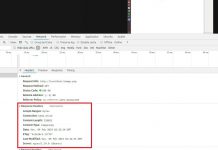As of Jan 2019, according to Wikipedia, a privacy policy is a statement or a legal document that discloses some or all the ways a party gathers, uses, discloses and manages a customer or client’s data. Read more about this directly on Wikipedia site. For websites, the Privacy Policy is meant to help your website users understand what information is collected and why it is collected and if the users can get any access of their information.
As a blogger or website owner it become very important for you to disclose what you do with the data that you gather from users who visit your site.
There are many sites that provide tools to help you build your website privacy policy. In order to use these tools or even to write your own policy, you should know some information about your site.
In this post I will try and highlight some of the information you will need to know in order to build your website privacy policy.
A Privacy policy for a website usually contains some sections related to the interaction between your visitors and your server or where your website is hosted in the case of third party hosting company.
Log Files
Any time a user goes online and visits a website, there is usually a log file that records this visit. You should mention in your policy who can access this log file. If you can access the server running your website then you should disclose what you can see in the log which typically includes the internet protocol (IP) address of the user, type of browser, time of visit, referring pages and the page visit on the website. This is not limited to what I specified and you will know more about this by examining your server log file. If your site is hosted by a third party, then you will need to understand from them hat kind of log file is generated.
Cookies
The next thing to disclose is related to the use of cookies on your website. You should inform your website users if you use cookies, why you use cookies and if your users can disable cookies and how it will impact them on your website if they disable cookies. It is a good idea to provide links for your users to educate themselves more about what cookies are and what they are used for.
Advertising
Disclose to your website visitors if you have advertising or targeted advertising on your site. You may not have directly used targeted advertising, but your choice of Advertising provider may be using such a method. You should follow your advertisers suggested disclosure and provide users a way to opt out of this advertising if the advertiser allows such. If you have links on your website that enable you to make some money if users click on them, then it is a good practice to disclose this information. Follow the guidelines provided by your advertiser, as they usually let you know what you should disclose to your website visitors.
Website Analytics
If you embed any code on your site that can be used for getting analytics/insights on your website usage by visitors then you should declare this in your privacy policy. If such service has a way to opt out, then provide links, so that the users can do so if they wish.
Data collection and retention
Disclose to your users what you collect and why you collect when they interact with your site and how long is the collected data kept.
Sharing
Disclose to your users if you do any kind of data sharing and if any other third party has access to the data collected. Some data like comments might be reviewed by an automated spam detection service. Use of Social Media Widgets may trigger cookie use and information getting logged at the third party service provider.
External Links
It is a good idea to let your users know that your website privacy policy only applies to your website. If your website links to other websites, then users should review their privacy policy. Your website is not responsible for content on other websites and that you do not endorse those website or their content by providing external links to them.
Some websites like mine also have a separate Cookie Policy which explains more about cookie usage and if users can opt out.
Contact
Add a contact page or provide a method for users to get in touch with you if they have any questions about your site or it’s privacy policy.
Changes to your policy
Encourage your website users to review your website policy periodically and inform them how to detect if you made any change to your website privacy policy.
This is a guide to help you build a privacy policy, by no means is it complete or binding. You are responsible for building the privacy policy matching your website.

























